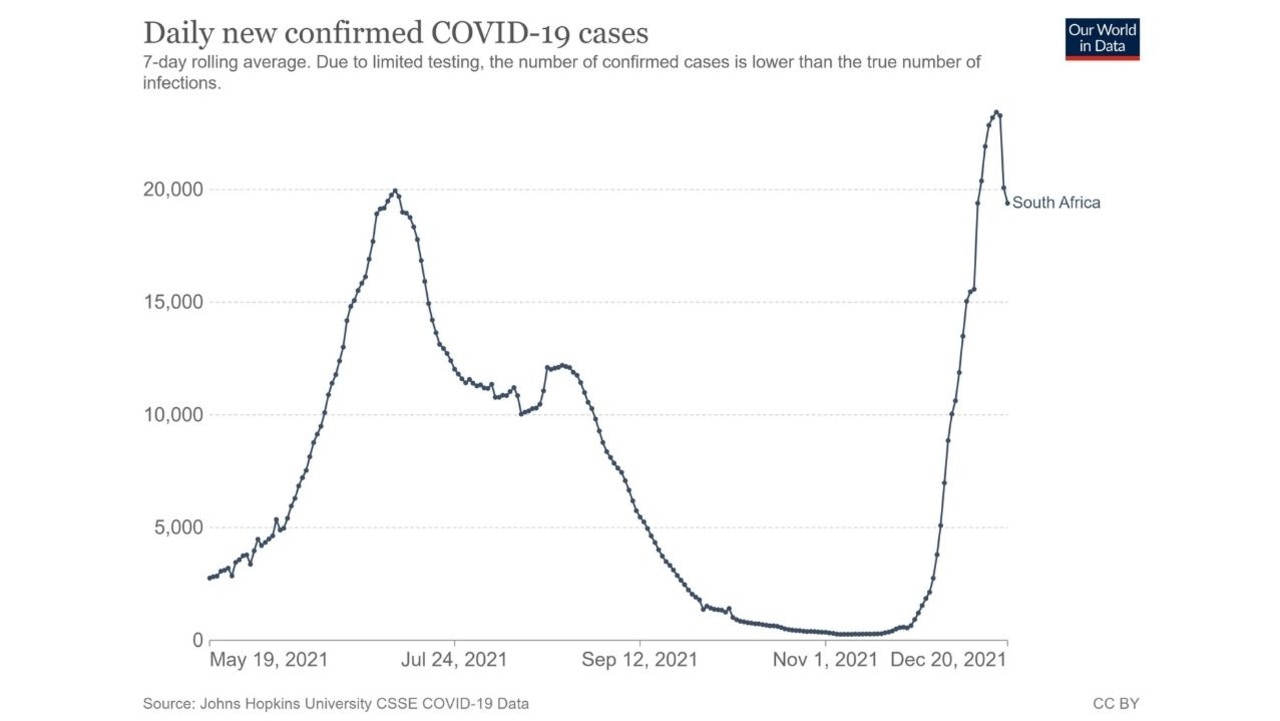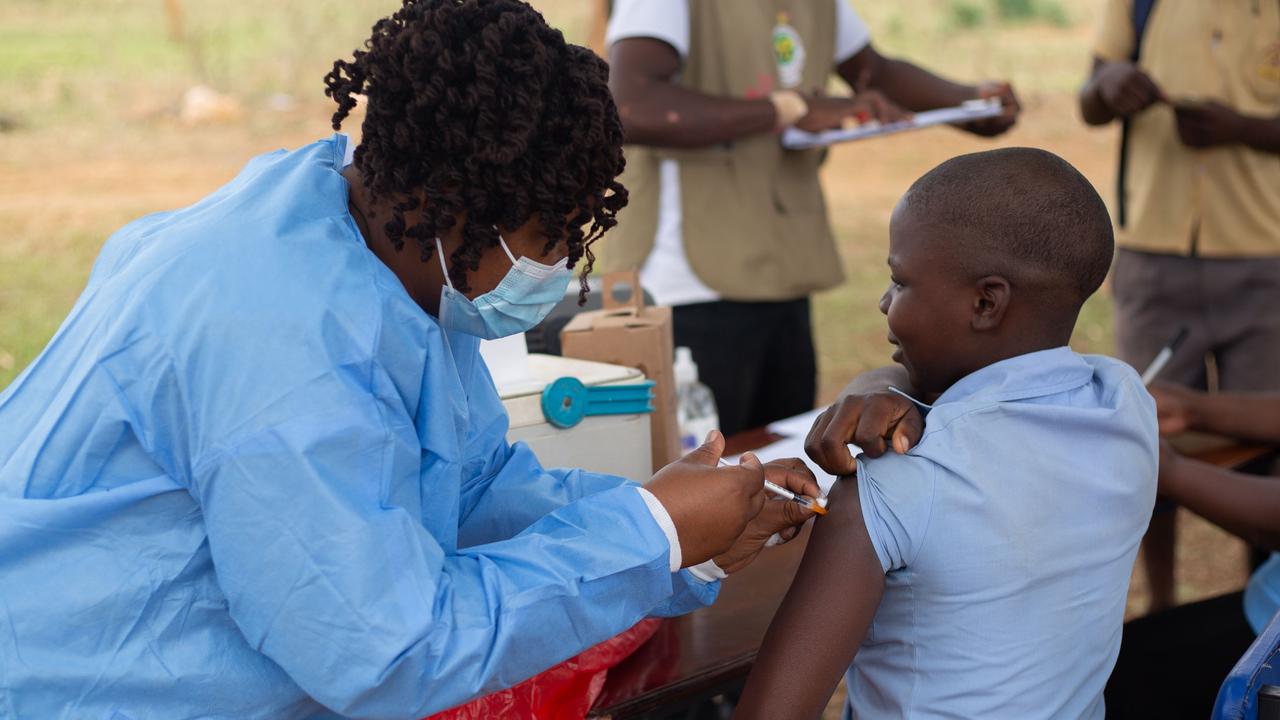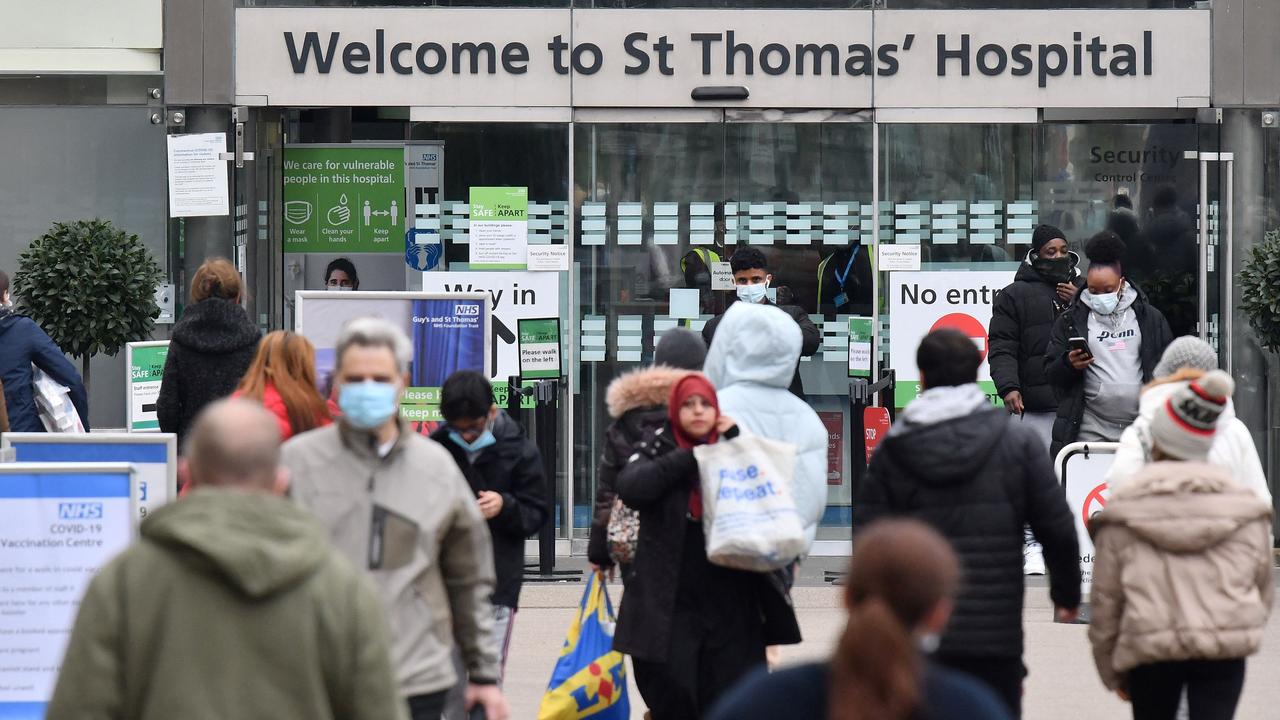Prediction Omicron will soon be ‘pretty much gone’ in nation where it was discovered
After a record increase of cases engulfed this country, new data suggests the worst is over and Omicron will soon be “pretty much gone”.
Experts predict Omicron will have fizzled out in South Africa, where it was initially discovered, within weeks in a huge boost to morale for the rest of the world.
Infections have spiralled in the past week and admissions failed to reach expected levels, as hospitals “never reached capacity”, The Sun reports.
It bodes well for Australia, where cases have surged to record levels in recent days, but we have yet to see similar increases in hospitalisations or deaths.

A string of hugely positive studies show Omicron is milder than other strains, with the first official UK report revealing the risk of hospitalisation is 50 to 70 per cent lower than with Delta.
NSW health officials this week said Omicron appeared to be up to five times less likely to cause severe illness than Delta.
Covid booster jabs protect against Omicron and offer the best chance to get through the pandemic, health officials have repeatedly said.
Omi-gone
South African scientists are confident the Omicron outbreak there is receding and may last a total of just a couple of months.
There was a sudden steep rise in cases from close to zero in mid-November to an average of 10,000 daily cases early in December, after the variant was first detected there.
That then fell sharply to around 5000 per day on average.
Francois Venter, a medical professor at the University of the Witwatersrand in Johannesburg, predicted that at the current rate of decline, Omicron would “be pretty much gone” from all of South Africa by the end of January, The Times reports.
Professor Salim Abdool Karim, who leads the country’s pandemic response, said he expected “almost every other (country) to follow the same trajectory”.
He told The Washington Post: “If previous variants caused waves shaped like Kilimanjaro, Omicron’s is more like we were scaling the north face of Everest.”
But John Nkengasong, director of the Africa Centres for Disease Control, said to “be careful not to extrapolate what we are seeing in South Africa across the continent, or across the world”.
Drop in cases
Dr Waasila Jassat, of the National Institute for Communicable Diseases (NICD), said: “We saw a very rapid rise in cases and an early peak — and the indications are that since then we’ve had a remarkable drop.”
NICD’s latest report shows that cases up to December 18 have dropped nationally by 20.8 per cent in one week.
In the Gauteng Province, which was the epicentre of the variant, cases have significantly come down by almost half (46 per cent), with drops of between six and 40 per cent in other provinces.

NICD’s Michelle Groome told a news briefing: “Really we feel that this has persisted for over a week and that we are past the peak in Gauteng.”
But she cautioned there could be lower cases because people are less likely to come forward for testing during the holiday period.
The nation has been at “alert level one” of a five-tier lockdown strategy since October, with mask mandates, a curfew from midnight to 4am, and ban on indoor gatherings of more than 750 people.
Hospitals coping
The data suggest Omicron peaked within one month of first being detected, with the impact on healthcare being less severe than previous waves.
While hospital admission have risen, they have so far remained far below the levels seen during previous waves of the pandemic.
Deaths were also and people with Omicron stay in hospital for shorter periods – suggesting, again, milder disease – Dr Jassat said.
She told reporters: “There’s been a decoupling, with less of a rise in hospital admissions.
“The hospitals never reached the capacity that we saw in previous waves, where you couldn’t get a bed.
“There’s a much lower admission rate and among those admitted there’s a lower proportion who are severe, a lower proportion who need oxygen, a lower proportion who are treated in ICU.”
The proportion of people admitted to hospital stood at 5.7 per cent, compared to above 13 per cent in the other waves.
Death rates have also come down from 19 per cent in previous waves to 5.6 per cent recently.
Early days
A rapid rise and fall of Omicron – as data shows is occurring in South Africa – is expected to happen in the UK, too.
Prof Chris Whitty, England’s chief medical officer, said he expected the wave “to peak really quite fast then come down faster than previous peaks”.
He told the Commons Health and Social Care Committee on December 16: “I think what we will see with this – and I think we are seeing it in South Africa – is that the upswing will be incredibly fast, even if people are taking more cautious actions, as they are.”

But he has said that even if Omicron turns out to be mild, high case numbers will still lead to pressure on Britian’s NHS.
And experts have repeatedly warned South Africa has a different population to the UK, which may mean the same trends don’t play out.
Sage – the scientific advisory group to the UK government – cautioned that what happens in South Africa may not translate to other countries in its most recent meeting.
It said, in minutes published this week, the “number of infections and hospitalisations in Gauteng appears to be declining”.
However, “the reasons for this are not clear and it cannot be assumed that this will be sustained. Nor can it be assumed that the wave in the UK will follow a similar pattern, given the different populations and epidemiological situations”.
This post originally appeared on The Sun and has been republished with permission





